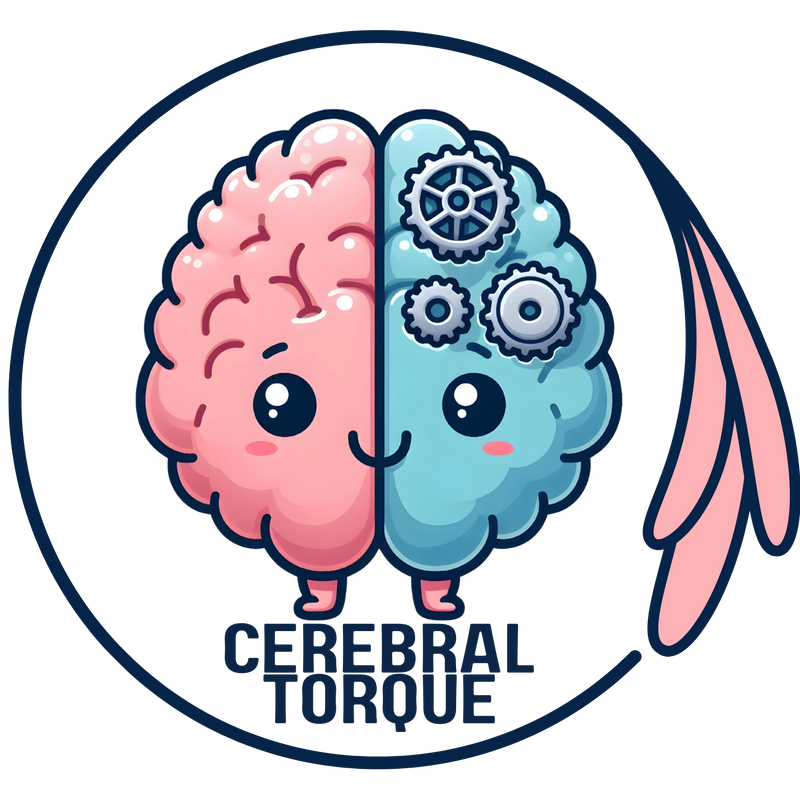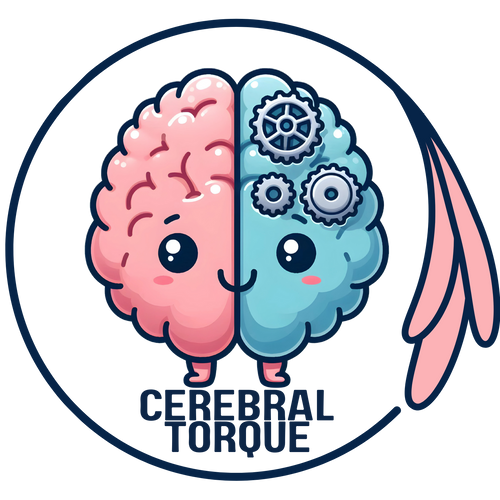CBN and Migraine
Posted on February 18 2024,

Emerging research implicates deficiencies in the body's endocannabinoid system (ECS) as a potential contributor to migraine. The ECS regulates critical functions like pain modulation, mood, memory, and more. When imbalanced, the ECS may fail to properly regulate these functions, possibly triggering migraine attacks.

Supplementing the ECS with specific cannabinoids like CBN (cannabinol) could help restore deficiencies linked to migraine.
WHAT IS CBN?
CBN is a non-psychoactive cannabinoid that is produced when THC (tetrahydrocannabinol) degrades over time. It is found in aged cannabis plants. Though research is still early, CBN shows promise in reducing inflammation and pain, relaxing muscles, improving sleep, and stabilizing mood, all of which could mitigate migraine.
Unlike the more well-known CBD (cannabidiol), CBN may be uniquely equipped to address migraine because of its heightened activity at CB1 receptors. CB1 receptors are primary targets of endocannabinoids and abundant in pain pathways of the brain and nervous system. Note that I am specifically referring to ingestible CBD here, as topical CBD products have shown effectiveness for localized pain relief when applied directly to the affected area.
In contrast to CBD, CBN demonstrates greater binding affinity and activity at CB1 receptors. This suggests that CBN may more directly impact endocannabinoid signaling involved in migraine pain. Through its agonist actions on CB1, CBN can regulate neuropeptides to suppress pain and inflammation. This key difference gives CBN potential advantages over ingestible CBD for restoring ECS balance. While more clinical research is still needed, CBN's activity at CB1 receptors positions it as a promising therapeutic option for migraine relief.
Cerebral Tranquility utilizes CBN's capabilities by combining hemp-derived CBN with melatonin that works synergistically to ease tension, calm nerves, and promote relaxation.
Let's go through some research and properties of CBN that may prove to be beneficial for migraine treatment:
SLEEP
This study from 2023 is a double-blind, randomized-controlled trial examining the effects of cannabinol (CBN) alone and in combination with cannabidiol (CBD) on sleep quality.
CBN significantly reduced nighttime awakenings and overall sleep disturbance compared to placebo. The addition of CBD at any dose did not augment the effects of CBN - in fact, none of the combination products showed benefits over placebo on any outcome.
Not only did I notice the same with the addition of CBD, but it also seemed to have a deleterious effect. The more the CBD, the less the CBN worked.
ANTI-INFLAMMATORY
Another study from 2023 showed that CBN can mitigate inflammation by inhibiting the release of inflammatory cytokines, suppressing COX-2 activity (similar to how NSAIDs work), and modulating NLRP3 inflammasomes.
Let's look at how this may help with migraine.
- Inhibiting release of inflammatory cytokines: Migraine is believed to involve neuroinflammation mediated by cytokines like IL-1β, IL-6, and TNFα. By suppressing production and release of these cytokines, as shown in this study, CBN could reduce inflammatory signaling that contributes to migraine attacks.
- Suppressing COX-2 activity: COX-2 catalyzes formation of inflammatory prostaglandins like PGE2. PGE2 sensitizes nerves involved in migraine pain. By reducing COX-2 expression, CBN may decrease production of pain-promoting PGE2.
- Modulating NLRP3 inflammasome: Activation of the NLRP3 inflammasome in trigeminal ganglia nerves plays a role in migraine pathogenesis. The ability of CBN to inhibit NLRP3 inflammasome activation could alleviate neuroinflammation driving migraine headache.
PHARMOKINETICS
Another study from 2023 found that CBN produced detectable levels in plasma AND BRAIN after single and 14-day repeated oral doses. Plasma CBN levels peaked around 1.5 hours after dosing and there was no evidence of accumulation of CBN in plasma or brain tissue over the 14-day dosing period.
Therefore, we have evidence that CBN crosses the blood-brain barrier, reaches its peak in 1.5 hours, and doesn't accumulate so daily dosing is recommended.
NEUROPROTECTION
Another 2023 study published in the British Journal of Clinical Pharmacology highlights the promising brain benefits of CBN.
In this study, researchers tested six different phytocannabinoids for their ability to protect rat brain cells (PC12 cells) from damage caused by amyloid beta, a toxic protein linked to Alzheimer's disease. They found that CBN was one of three compounds that offered significant neuroprotection.
Interestingly, CBN outperformed CBD when it came to defending brain cells against amyloid beta. The researchers also discovered that CBN directly interfered with amyloid beta aggregation, or clumping. Excess aggregation of amyloid beta leads to nerve cell injury in Alzheimer's disease.
While CBD (like CBN) has antioxidant properties that protect the brain, this study showed it had little effect on amyloid beta toxicity and aggregation, so CBN seems superior for supporting brain health. Again, this refers specifically to ingestible CBD products, not topical applications.
https://pubmed.ncbi.nlm.nih.gov/37697481/This 2023 study investigates the mechanisms behind the neuroprotective effects of CBN against oxytosis/ferroptosis, forms of regulated cell death involving oxidative stress that are relevant to neurodegenerative diseases. Several findings were found. Below are the findings and how they may relate to migraine:
- CBN effectively protects cells from oxytosis/ferroptosis induced by glutamate or the compound RSL3. It reduces mitochondrial reactive oxygen species (ROS) and lipid peroxidation, activates antioxidant defenses like Nrf2 and GPX4, and prevents mitochondrial calcium overload.
Oxidative stress and mitochondrial dysfunction have been implicated in the pathophysiology of migraine. CBN was shown to reduce mitochondrial reactive oxygen species (ROS) and activate antioxidant defenses. This could help counter oxidative damage thought to occur during migraine attacks.
- CBN maintains mitochondrial bioenergetics and ATP production against the damaging effects of RSL3. It subtly modulates the mitochondrial membrane potential and mitochondrial respiration.
The ability of CBN to maintain mitochondrial bioenergetics and ATP production could help provide energy to brain cells during migraine attacks, when alterations in brain energy metabolism have been observed. This could potentially reduce migraine attack symptoms.
- The modulation of mitochondrial calcium levels by CBN could influence cortical spreading depression, a wave of neuron/glial depolarization that is a key mechanism in migraine aura and triggering migraine pain. Calcium influx is involved in cortical spreading depression.
- The authors conclude that CBN maintains mitochondrial homeostasis against oxidative damage through coordinated effects on mitochondrial redox biology, bioenergetics, and dynamics.
Targeting mitochondrial function as CBN does could provide an alternative mechanism of action compared to existing migraine preventive and abortive treatments. More research is still needed, however.
Another study from 2023 found that CBN may protect against mitochondrial dysfunction in Parkinson's disease, thanks to its ability to modulate mitochondria localization, transport, protein regulation, and mitophagy processes that are disrupted in Parkinson's disease.
https://pubmed.ncbi.nlm.nih.gov/37627228/This 2021 study evaluated the effects of the CBN on neuroprotection, intraocular pressure (IOP) modulation, and extracellular matrix (ECM) remodeling in models of glaucoma. CBN displayed neuroprotective, IOP lowering, and ECM modulating effects in experimental glaucoma models. This suggests it may be a promising therapeutic candidate for glaucoma treatment.
How does this relate to migraine?
In vitro, CBN protected retinal ganglion-like cells from cell death induced by elevated pressure, showing neuroprotective effects. Other cannabinoids like THC did NOT show this protective effect. CBN can protect neuronal-like cells from death under stress conditions in vitro. If CBN also protects neurons involved in migraine pathogenesis, this could help alleviate migraine attacks.
Furthermore, the study showed CBN can modulate extracellular matrix proteins and relax cells in the trabecular meshwork tissue regulating intraocular pressure. If CBN has similar vascular relaxation effects in brain blood vessels, this could improve migraine-associated vasospasm and blood flow issues.
While more direct clinical research is still needed, the broad biological effects of CBN observed in this study support the potential for CBN having protective and therapeutic effects in migraine disease as well.
https://pubmed.ncbi.nlm.nih.gov/34921975/NEURONAL SIGNALING MODULATION
In this 2022 study, CBN was demonstrated to have anti-neuroblastoma effects via inhibiting AKT and activating the miR-34a tumor suppressor network, highlighting a potential new therapy for this pediatric cancer.
CBN was able to induce changes in gene expression and cell physiology in neuronal-derived cancer cells. This shows it can modulate CNS cells. If it has similar neuromodulator properties in the brain, it could potentially have therapeutic effects for migraine.
https://pubmed.ncbi.nlm.nih.gov/35454815/DECREASED SENSITIZATION
This 2019 study found that CBN reduced nerve growth factor (NGF)-induced masseter muscle sensitization in female rats. However, this was an injection to the muscle.
Sensitization of trigeminal neurons is thought to play an important role in migraine pathogenesis. Similar to what was done in this study with the masseter muscle, administration of CBN could potentially desensitize trigeminal nerves and relieve migraine pain.
Furthermore, it is possible that using CBN will allow this decreased sensitization to provide a greater threshold for common triggers, indirectly resulting in decreased migraine attack frequency.
https://pubmed.ncbi.nlm.nih.gov/31158702/CONCLUSION
The growing body of research on CBN suggests multiple mechanisms through which it may benefit those suffering from migraine. From improving sleep quality and reducing inflammation to providing neuroprotection and decreasing pain sensitization, CBN shows promise as a multifaceted approach to migraine management. While more clinical studies specific to migraine are needed, the current evidence supports CBN as a promising option worth exploring for those seeking natural relief. It's important to note that while ingestible CBD has limitations for migraine relief, topical CBD products have demonstrated effectiveness for localized pain when applied directly to affected areas.
Wed, Jan 14, 26
New Emergency Department Migraine Treatment Guidelines
The American Headache Society (AHS) has released its 2025 guideline update for the acute treatment of migraine in adults presenting to the emergency department. This update, published in Headache in...
Read MoreSun, Jan 04, 26
Long-Term Safety of Anti-CGRP Monoclonal Antibodies
A comprehensive meta-analysis of over 4,300 patients reveals that erenumab, galcanezumab, fremanezumab, and eptinezumab maintain good tolerability beyond 12 months. Only 3% of patients stopped treatment due to adverse events,...
Read MoreThu, Jan 01, 26
Alternate Nostril Breathing Protocol for Migraine
Alternate nostril breathing is a simple yogic technique that's showing real promise for migraine prevention. Unlike acute treatments, this practice builds nervous system resilience over time - making attacks less...
Read More


